Search Images
Browse Content (p. 1443)
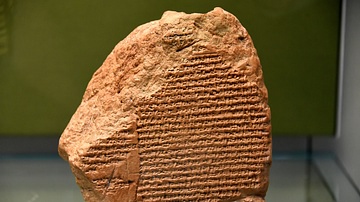
Image
Nabonidus Chronicle
The fall of a dynasty! Nabonidus' faults and absence were recorded alongside events of his reign. By the autumn of 539 BCE,, Babylon has surrendered to the army of king Cyrus to become part of the growing Achaemenid Empire. From Babylon...

Image
A One-mina Weight from Southern Mesopotamia
This is a diorite mina weight in the shape of a sugar loaf. The inscriptions state that this was a copy of a weight made for Nebuchadnezzar, following the standard of Shulgi, "The Old Sumerian King" (reigned 2094-2047 BCE). It was the property...
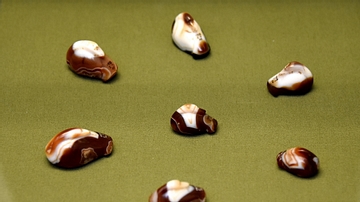
Image
Seven Mesopotamian Agate Duck-weights
These weights are in the range of 8.7 to 24.7 grams, roughly between 1 and 3 Babylonian shekels. Weights had been made in this characteristic duck-shape since around 2000 BCE. From Southern Mesopotamia, Iraq. Circa 700-500 BCE. (The British...
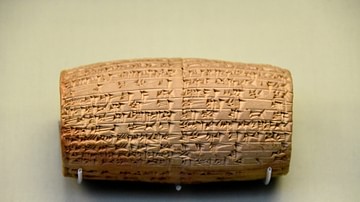
Image
Mesopotamian Cylinder Naming Nabonidus & Sacred Buildings
Clay cylinder with Babylonian characters, recording the restoration of Sin's ziggurat at Ur and also asking him to protect Nabonidus and his son Belshazzar. From Ur, Southern Mesopotamia, modern-day Iraq. Neo-Babylonian Period, reign of Nabonidus...

Image
Mesopotamian Tablet Naming Belshazzar
This adminsitrative document is dated to the "24th day of Kislimu in the 11th year Nabonidus, King of Babylon". It mentions "a slave of Bel-sharra-usur (Belshazzar),son of the king". Although Belshazzar is acting as regent, the formal date...
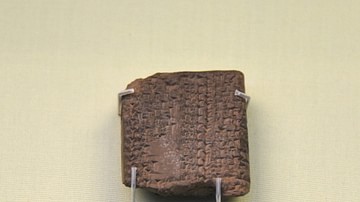
Image
Mesopotamian Tablet on Marduk
Babylonian tablet, a scholar speculating on how powerful, independent Mesopotamian gods can be seen as aspects of the god Marduk. From Babylon, Southern Mesopotamia, Iraq. Neo-Babylonian Period, reign of Nebuchadnezzar II, 605-562 BCE. The...
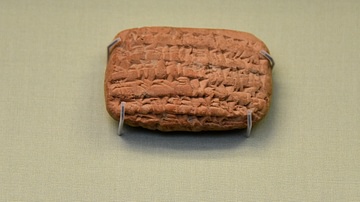
Image
Nebuchadnezzar's Right Hand Man
The Chief Eunuch, Nabu-sharrusu-ukin, rab sha-reshi, donated gold to the Marduk Temple at Babylon. His name and title occur as Nebo-Sarsekim, rab-saris, in Hebrew in the Book of Jeremiah. He probably met the prophet Jeremiah at Nebuchadnezzar's...
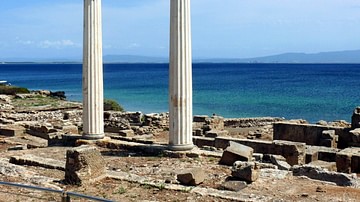
Image
Classical Columns, Tharros.
Two standing Roman columns on Tharros, Sardinia, originally a Phoenician colony.
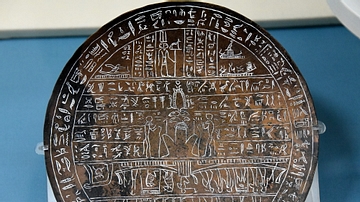
Image
Bronze Hypocephalus of Djedhor
Hypocephali are inscribed discs usually of plastered linen and less frequently of papyrus or bronze, which were placed beneath the heads of mummies in the Late/Ptolemaic Periods. The texts written on them were taken from spell 162 of the...
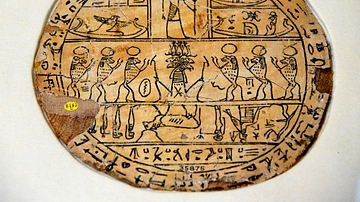
Image
Linen Hypocephalus
Hypocephali are inscribed discs usually of plastered linen and less frequently of papyrus or bronze, were placed beneath the heads of mummies in the Late/Ptolemaic Periods. The texts written on them were taken from spell 162 of the Egyptian...